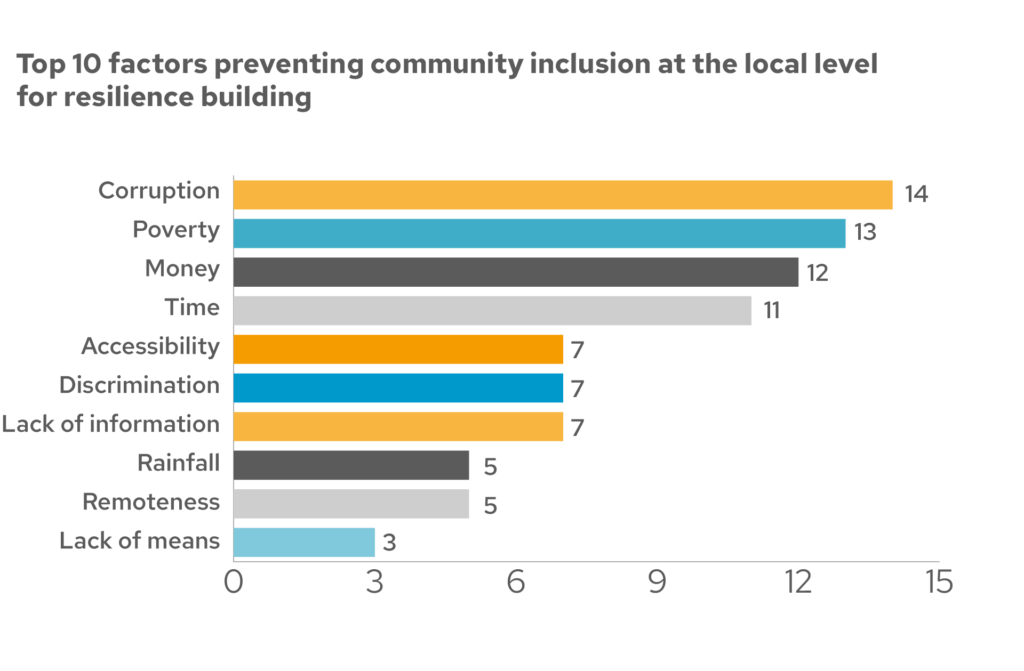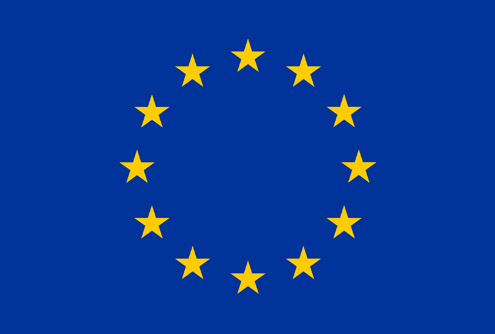VIEWS FROM THE FRONTLINE
Nigeria
We’re working with 15 communities in Nigeria to ensure that development is informed by the perspectives of people most at risk.
As part of our global Views from the Frontline programme we have surveyed community members, civil society organisations and government representatives across the country. Here we present our key findings, conclusions, activities and impact.
Random household surveys
Civil society surveys
Local government surveys
Key findings and conclusions at the national level
- The risks experienced by communities continue to be significantly high due to the lack of resilience building and developmental information, resources and infrastructure at the local level
- Inclusion of communities in the assessment, planning, implementation and monitoring of risk reduction plans and activities is missing
- Local level developmental plans and investment projects are not informed by disaster, changing climate and ecosystem degradation risks

Surveys undertaken in Nigeria
Our Views from the Frontline surveys in Nigeria were undertaken in 2019.
Who was surveyed?
We surveyed 2,186 random households, 150 civil society organisations, 150 local government representatives, and undertook 76 community consultations.
Risk locations prioritised
We prioritised six risk areas:
- Adamawa
- Delta
- Lagos
- Akwa-Ibom
- Kwara
- Imo
Communities surveyed
We surveyed people from 15 communities: Mubi, Numan, Shuw/Duhu, Irri, Aradhe, Iyede-Ame, Makoko, Iwaya/Oko-Agbon, Abekpi, Ntak-Inyang, Patigi, Lafiagi, Ilorin, Nekede and Oguta.
“The task of disaster risk reduction in the riverine area to reduce/mitigate floods is a collective one.”
Community representative, Akwa-lbom State, Nigeria
Our impact
Activities undertaken in response to community-level findings and conclusions
- Ran campaign to advocate for the inclusion of women and young people in contingency planning for disaster mitigation
- Met with LGA secretariat, NDDC and other stakeholders to advocate on the need for transparency and accountability in governance, with respect to disasters, changing climate and ecosystem degradation risk issues
- Rehabilitated a dilapidated drainage system, constructed concrete bridges, and undertook sand filling and re-channelling of waterways
- Led advocacy campaign to aimed at decision makers and policy stakeholders for inclusion of children/youth and other vulnerable groups’ voices in DRR planning
Impact of activities
- Increased inclusion of community members – especially women and other vulnerable groups – in disaster-related contingency planning at all levels
- Bridged the gap between local communities, local CSOs and LGA to foster effective communication and ensure communities are updated on government policies and plans
- Strengthened the information and knowledge base of community members to act on DRR issues in their locality
Our project partners in Nigeria
Our Views from the Frontline programme is implemented by GNDR member organisations and partners in the country.
National coordinating organisation
- Women Environment and Youth Development Initiative
Partner organisations
- Bege House Foundation
- Niger Delta Women,s Movement for Peace and Development
- JAKIN Initiative International LTG.GTE
- Network Advancement Programme for Poverty DRR
- Women Environment and Youth Development Initiative
- Better Community Life Initiative
View all data from Nigeria
You can view all our Views from the Frontline survey data using our data dashboard. You can also learn more about our methodology for selecting at-risk areas and survey respondents.
Project funded by
European Union

Our Views from the Frontline project is funded by the European Union (EU). Content related to this project on our website was made possible by the support of the EU. All content is the sole responsibility of GNDR and does not necessarily reflect the views of the EU.
View their websitePhoto credit
Image by Yvonne Etinosa/GNDR.